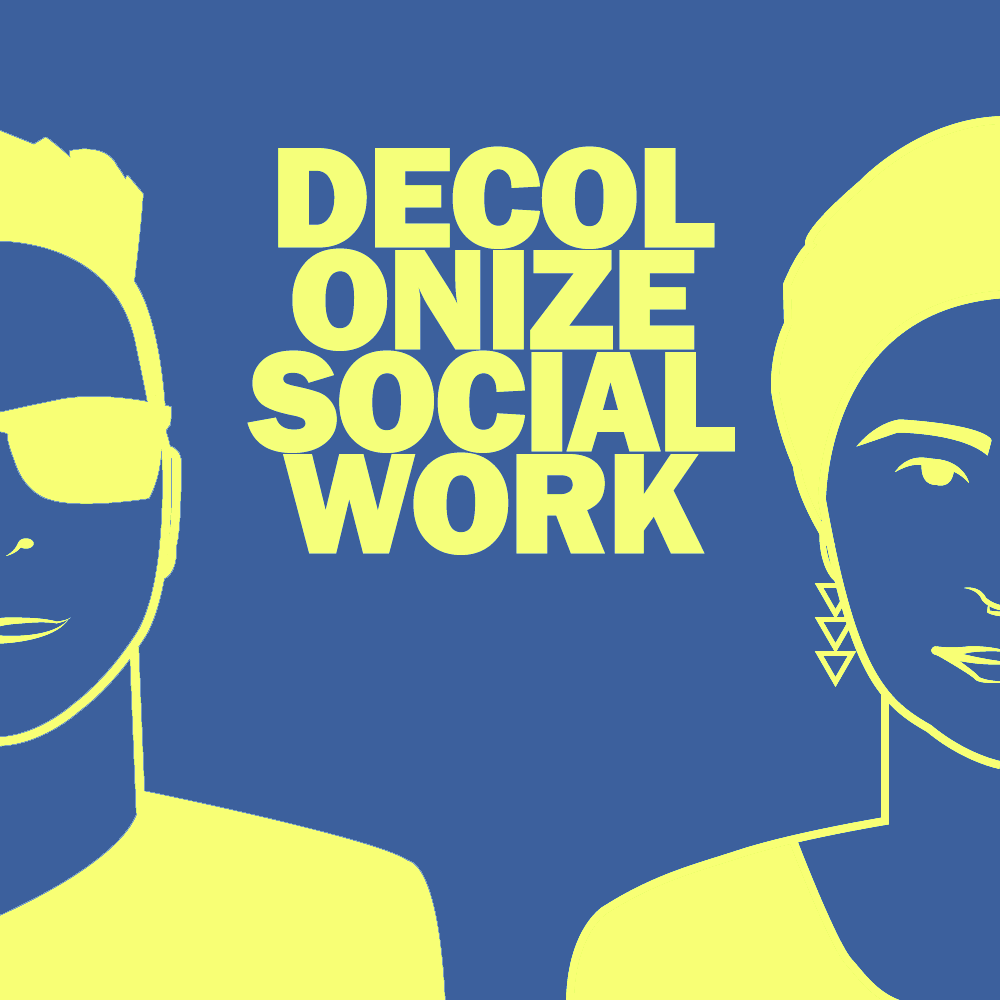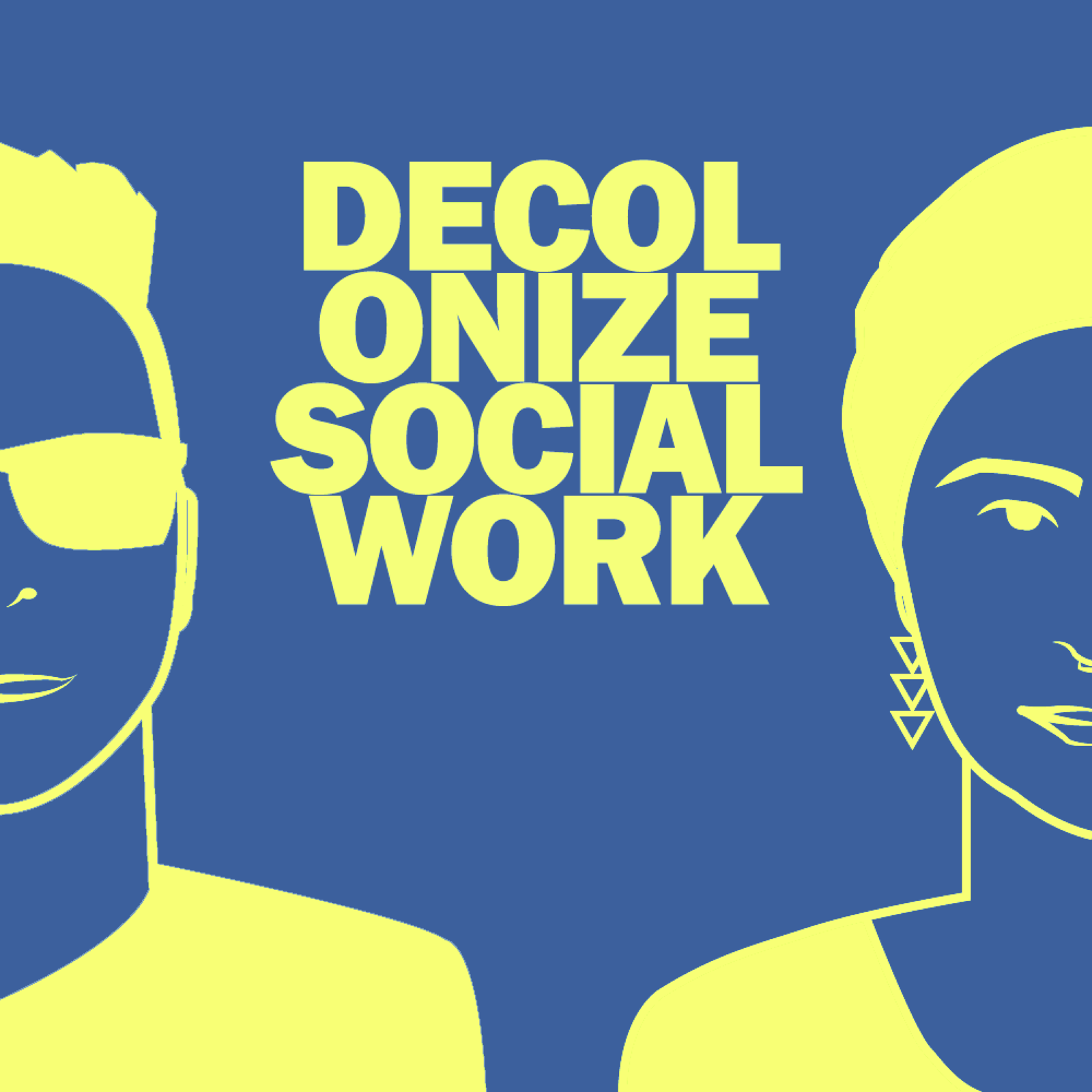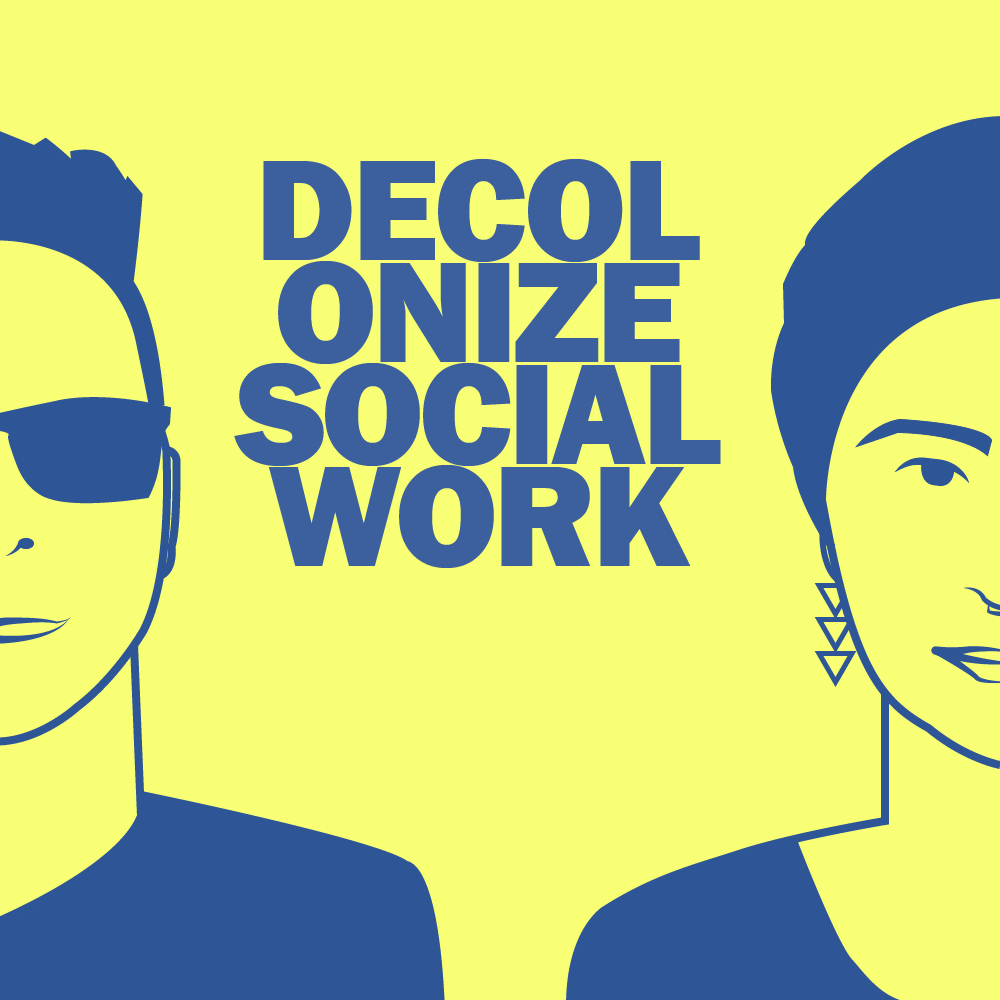Discover Decolonize Social Work
Decolonize Social Work

15 Episodes
Reverse
Wow. What was 2020? There was a lot that happened, a lot of it bad. But there were some moments of clarity that helped show what is also possible in this world. We'll go in a little about that, why student loans should be cancelled, what the point of social work is at this moment in our lives, and this year's Goodreads challenges (spoiler: 2020's challenge didn't go as planned!)
Transcript can be found here: http://decolonizesocialwork.org/episode/return-sorts
CW: Please be advised that in the following episode we discuss police violence against Black communities, including murder, and trauma experienced by survivors of human trafficking.
~
We need to talk about social workers and the police. Again.
With the global and local effects of COVID-19 bearing down on us and without any clear expectation of when it might end, it's as important as ever to take care of our communities. In this episode, we talk about the importance of mutual aid, the history of these networks, and why - if you haven't before - now is the time to seriously consider getting involved with them.
Working under stressful, unhealthy conditions is an ailment in the field of social work that mutes the voices of social workers, leads to burn out, and ultimately results in poor services to our clients. Worker-owned cooperatives offer an alternative to the hyper-capitalistic model we're all familiar with by giving power back to us - the workers - as collective owners of our work. It also enables us to center our values instead of our profit-margins. Listen and learn about the benefits of worker-owned cooperatives, and then get out there and take back social work! And for real, let's agree to stop with the financial literacy classes for our clients.
Note: This episode was recorded in October 2019, so while the conversation here is pure and timeless, please excuse a couple of out-of-time mentions about the Kentucky governor's race - cuz that already happened!
Social workers spend a lot of time researching, talking about, and working together to come up with ways we can better serve our clients and communities. But what if the way we improve our services and support was by helping ourselves on the labor side of social work? Social workers routinely talk about how overworked and underpaid they are - but why does it have to be this way? This episode, we talk to a union organizer about the benefits of labor unions, why social workers specifically should seriously think about labor unionization, and a few things to expect if you do wanna take the first step at starting a social worker labor union. We can do this, y'all!
We - as in social workers - need to talk about police violence against Black people.
Several episodes into this project, and we take a leap back to offer some further groundwork for what we mean when we say "decolonization" in social work but also in society. We hope to clarify that, to paraphrase Eve Tuck and K. Wayne Yang, that decolonization is not a metaphor for a different or better version of the same old social work. Prepare to get out of our comfort zones, everybody!
*dusts off mic*
Hey everyone! We know it's been several months since our last episode, and so we just wanted to check in and tell y'all that this project of ours is STILL kicking. We've just had a lot of things going on in our personal and professional lives that we haven't had the time to squeeze in the time to produce a new episode. But we're back and a new episode is on the way! We're really excited about what's on the docket for this podcast for the rest of the year, and we look forward to hearing your feedback!
RE-RELEASE! After getting some helpful feedback from our social worker podcasting comrade Shimon from over at Doin' the Work Podcast (Thanks, Shimon!) about some tweaks we could make to this episode's recording, we're releasing a newly edited version that we think might sound a little better for those of you who may've had some difficulty hearing everything in our original release. Also, so as to not bombard everybody with two new re-released episodes, we've combined Part 1 and Part 2 into one track here. Hope you enjoy!
~
Threatening to separate families that don’t conform to colonizer norms is as old as the United States itself. This threat and the actual removal of children from their families has been institutionalized in what is now known as the modern child welfare system.
Most social workers are familiar with some iteration of the child welfare system. In fact, popular opinion would probably have you (misguidedly) believe that social work IS child welfare. But really, what is this system that we call child welfare? Can the welfare of any and every child truly be determined by an entity founded on the norms of white middle-class heterosexual parenthood?In this episode, we speak with our (first!) guest, CT, about their 20-year experience working in child welfare. They share some gripping accounts of how this system causes more harm than it prevents as well as how it disproportionately targets families of color - especially Black families - than white families. And not only is this a terrible system for families to get caught in, but it’s demoralizing, dangerous, and unsupportive for the social workers employed by this system as well.
PART 2 OF 2!
Threatening to separate families that don’t conform to colonizer norms is as old as the United States itself. This threat and the actual removal of children from their families has been institutionalized in what is now known as the modern child welfare system.
Most social workers are familiar with some iteration of the child welfare system. In fact, popular opinion would probably have you (misguidedly) believe that social work IS child welfare. But really, what is this system that we call child welfare? Can the welfare of any and every child truly be determined by an entity founded on the norms of white middle-class heterosexual parenthood?In this episode, we speak with our (first!) guest, CT, about their 20-year experience working in child welfare. They share some gripping accounts of how this system causes more harm than it prevents as well as how it disproportionately targets families of color - especially Black families - than white families. And not only is this a terrible system for families to get caught in, but it’s demoralizing, dangerous, and unsupportive for the social workers employed by this system as well.
PART 1 OF 2!
Threatening to separate families that don’t conform to colonizer norms is as old as the United States itself. This threat and the actual removal of children from their families has been institutionalized in what is now known as the modern child welfare system.
Most social workers are familiar with some iteration of the child welfare system. In fact, popular opinion would probably have you (misguidedly) believe that social work IS child welfare. But really, what is this system that we call child welfare? Can the welfare of any and every child truly be determined by an entity founded on the norms of white middle-class heterosexual parenthood?
In this episode, we speak with our (first!) guest, CT, about their 20-year experience working in child welfare. They share some gripping accounts of how this system causes more harm than it prevents as well as how it disproportionately targets families of color - especially Black families - than white families. And not only is this a terrible system for families to get caught in, but it’s demoralizing, dangerous, and unsupportive for the social workers employed by this system as well.
Does your organization only value what's in writing? Do you or your coworkers have a habit of venting about each other or clients in the office? Do you have a coworker who doesn't know how to delegate?
If you answered yes to any of those, then... hate to break it to you, but those acts/behaviors may be white supremacy culture happening right where you work.
These characteristics, or norms, show up in every workplace; hospitals, medical clinics, nonprofit organizations, social service agencies, etc, and they merit evaluation as to where they came from. Our society, unfortunately, is so steeped in a culture of white supremacy, that sometimes we aren’t even aware that the things we do at work, really everyday things, are reinforcing that culture.
In this episode, Ondine and Drew will discuss how these common occurrences that we all take for granted actually stem from tenets of white supremacy culture and the responsibility that social workers have to recognize and resist them.
In any program that trains and prepares social works, you will no doubt encounter issues about objectivity, exploitation, and dual relationships. Usually, though, those concepts are taught to us in strictly binary terms. In this episode, Ondine and Drew look at an example of community-based social work in Cuba to deconstruct how we in the United States might do better to reconsider our attachment to objectivity as well as our total avoidance of dual relationships.
ALSO ALSO ALSO: We've uploaded a transcript for this episode! Check out this [link](http://decolonizesocialwork.org/episode/community-based-social-work-cuba-us), or go to decolonizesocialwork.org and click on the page for this episode (Episode 3)!
Many, many people are out there doing social work, but who gets to actually call themselves and be recognized as a social worker? In this episode, we take a brief look at the regulation policies around who gets to be a social worker, why the regulations exist, and find suggestions for how regulation policies can become more inclusive for people doing social work but aren't able to get recognition for their work.
Pilot: Is social work actually the social justice profession it claims to be? What are we getting right? In what ways might we be doing more harm than good?
Social work is an amazing field, but it also exists in a society driven by white supremacy culture and colonizer ideology. In this podcast, Ondine and Drew begin an ongoing conversation to explore social work and look at when it rejects those harmful social constructs, where it might need to still do better, and if social work can truly liberate us from oppression.








I am loving this podcast. thanks for sharing these absolutely resonant conversations that I've been stewing in on my own as an isolated distance ed white settler student in rural Canada. so much discomfort! and all so worthwhile.